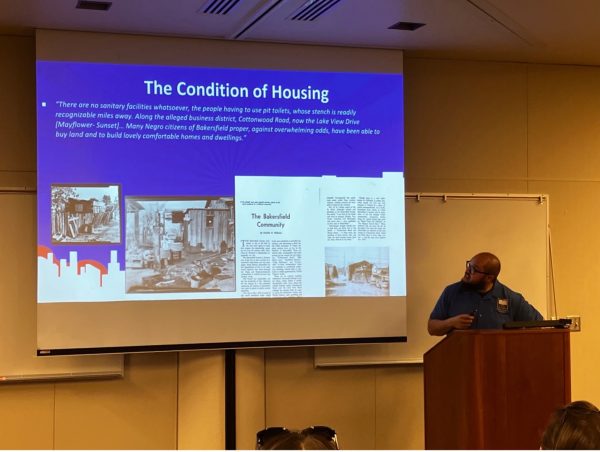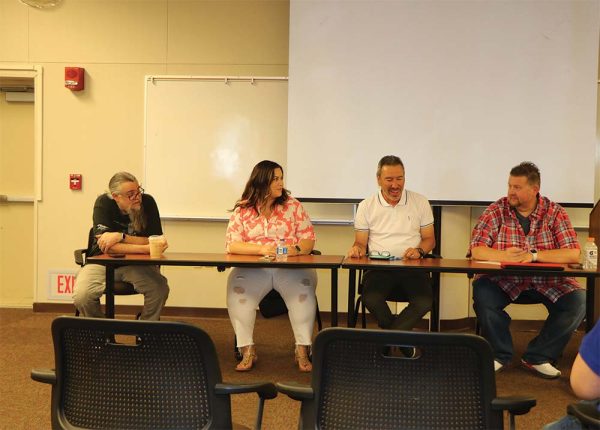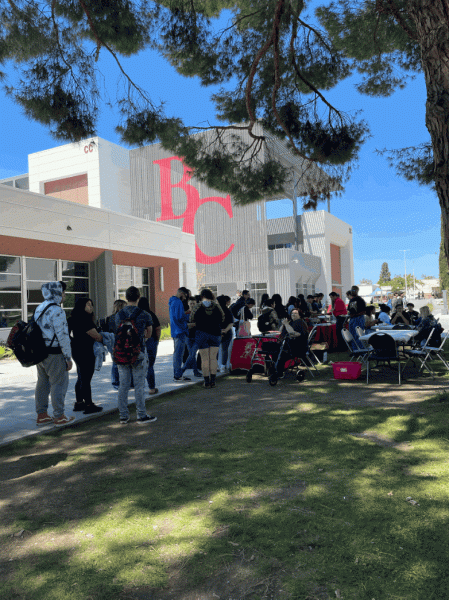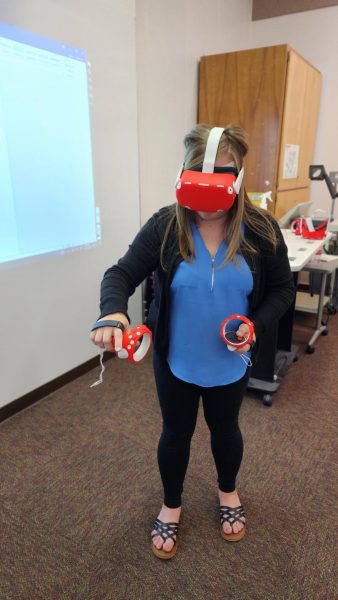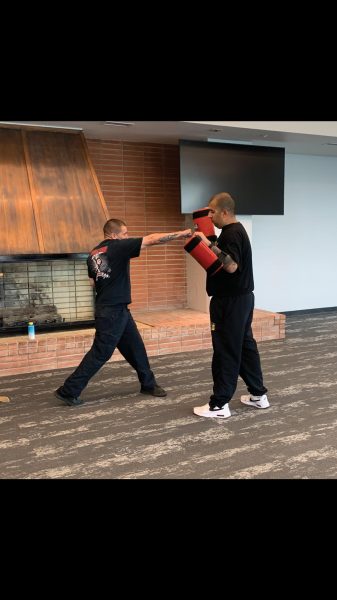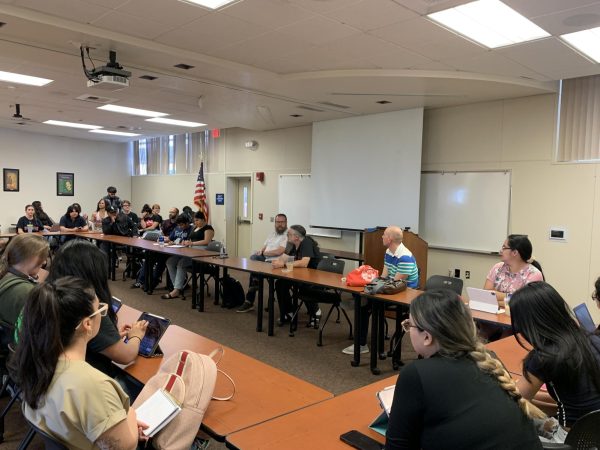Kern County Museum lectures on KKK history
October 4, 2017
The Kern County Museum held a historical lecture at Pioneer Village on sept. 13 named “The KKK in Kern County.” The lecture was given by Curator of Collections Lori Wear and shed light on the Ku Klux Klan’s presence in Kern County, specifically in the 1920s.
“I think it’s important in a lot of ways to remember your history,” Wear said as she explained the purpose of the lecture, which had raised some controversy from Bakersfield citizens over the topic.
Wear gave the example of post-World War II, when “90 percent of anything related to Hitler had been wiped out by bombing by the Allies.”
“And yet, that didn’t stop a rise in Neo-Nazism in Germany in later years,” said Wear. She believed that by dragging hate groups like the KKK into the light, it will rob them of their power, which Wear says lies in the KKK’s secrecy.
The KKK began recruiting through the efforts of Homer R. Pitts in 1921 with the narrative that they were a vigilante group who could do what the police could not.
The KKK meetings were originally held on 921 Niles Street at Harry D. Reynold’s house and later at the Kern River Club in the Taylor Building on Chester Avenue. Some of the victims of the Kern County KKK were whipped, beaten, hanged and even tarred and feathered.
One victim by the name of George Bowman was beaten and dragged through an oil sump before being forced to leave town.
In 1922, the Bakersfield Californian published a list of over 350 names of members of the KKK in Kern County.
Among the names was that of the Bakersfield Police Chief, Charles Stone and Stanley Abel, a six-time county supervisor in Taft.
The lecture ended with Wear taking and answering questions from the crowd.





